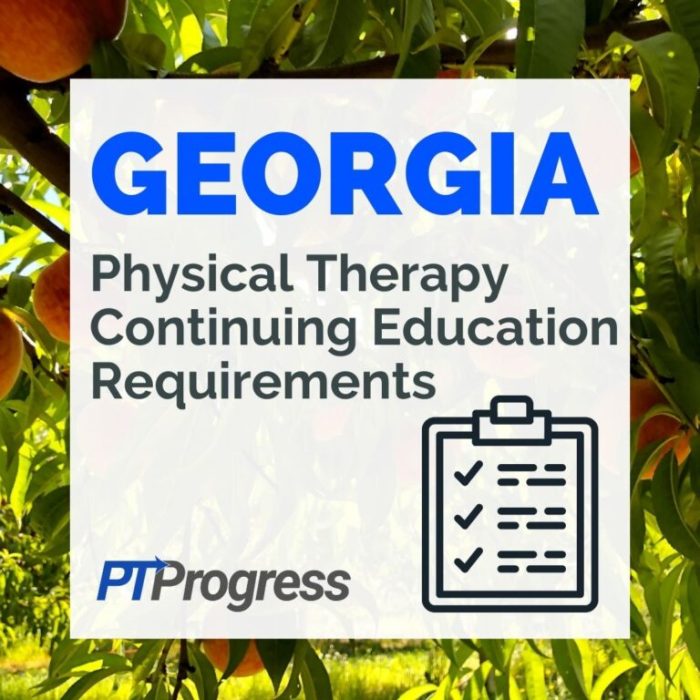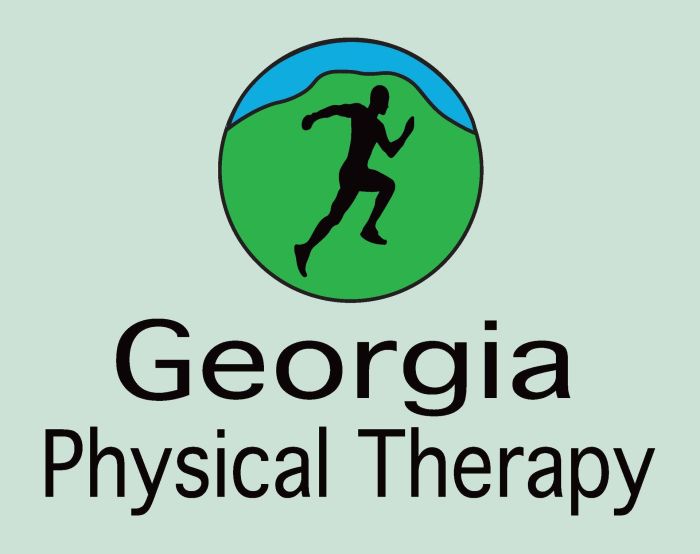Embark on a comprehensive exploration of the Georgia Physical Therapy Ethics and Jurisprudence course, an essential resource for physical therapists navigating the ethical and legal complexities of their profession in Georgia. This course delves into the ethical principles, legal considerations, and best practices that guide physical therapists in providing safe and ethical patient care.
The course covers a wide range of topics, including the scope of practice for physical therapists, ethical considerations in patient management, interprofessional collaboration, professional conduct, continuing education, risk management, and patient safety. By understanding these concepts, physical therapists can enhance their practice, protect their patients, and uphold the highest standards of ethical and legal conduct.
1. Ethical Principles and Legal Considerations in Georgia Physical Therapy: Georgia Physical Therapy Ethics And Jurisprudence Course

Physical therapists in Georgia must adhere to ethical principles that guide their practice. These principles include beneficence (doing good), non-maleficence (avoiding harm), autonomy (respecting patient choices), and justice (ensuring fair and equitable treatment).Georgia’s legal framework for physical therapy practice includes state laws and regulations that govern the scope of practice, patient management, and professional conduct.
Physical therapists must be licensed by the Georgia Composite Medical Board and follow all applicable laws and regulations.
2. Scope of Practice and Patient Management

Physical therapists in Georgia have a well-defined scope of practice that includes assessment, diagnosis, treatment, and prevention of physical impairments. They are qualified to evaluate patients, develop treatment plans, and provide interventions to improve mobility, function, and overall well-being.Ethical and legal considerations in patient management include obtaining informed consent before treatment, maintaining patient confidentiality, and documenting all aspects of care.
Physical therapists must respect patient autonomy and involve them in decision-making processes.
3. Interprofessional Collaboration and Referral
Interprofessional collaboration is essential in physical therapy. Physical therapists work closely with physicians, nurses, and other healthcare professionals to provide comprehensive patient care. They consult with other healthcare providers to ensure continuity of care and make appropriate referrals when necessary.Ethical
and legal guidelines for referring patients include ensuring that the referral is appropriate and in the best interests of the patient, and obtaining patient consent before making a referral. Physical therapists must maintain open communication with other healthcare providers to facilitate effective collaboration.
4. Professional Conduct and Continuing Education
Physical therapists in Georgia are expected to maintain the highest standards of professional conduct. This includes adhering to ethical principles, avoiding conflicts of interest, and maintaining patient confidentiality. Physical therapists must also stay up-to-date on best practices and ethical guidelines through continuing education.Continuing
education is essential for physical therapists to remain competent and provide high-quality patient care. Georgia requires physical therapists to complete a certain number of continuing education hours each year to maintain their license.
5. Risk Management and Patient Safety

Risk management is a critical aspect of physical therapy practice. Physical therapists must identify and mitigate potential risks to patients, such as falls, equipment malfunctions, and medication errors. They must also maintain a safe practice environment and report any incidents or accidents that occur.Patient
safety is paramount in physical therapy. Physical therapists must adhere to all safety protocols and take all necessary precautions to prevent patient harm. They must also be prepared to respond to emergencies and provide appropriate care.
Essential Questionnaire
What are the ethical principles that guide physical therapists in Georgia?
The ethical principles that guide physical therapists in Georgia include beneficence, non-maleficence, autonomy, and justice.
What is the scope of practice for physical therapists in Georgia?
The scope of practice for physical therapists in Georgia includes assessment, diagnosis, treatment, and prevention of physical impairments and disabilities.
What are the ethical and legal considerations related to patient management?
The ethical and legal considerations related to patient management include informed consent, confidentiality, and documentation.